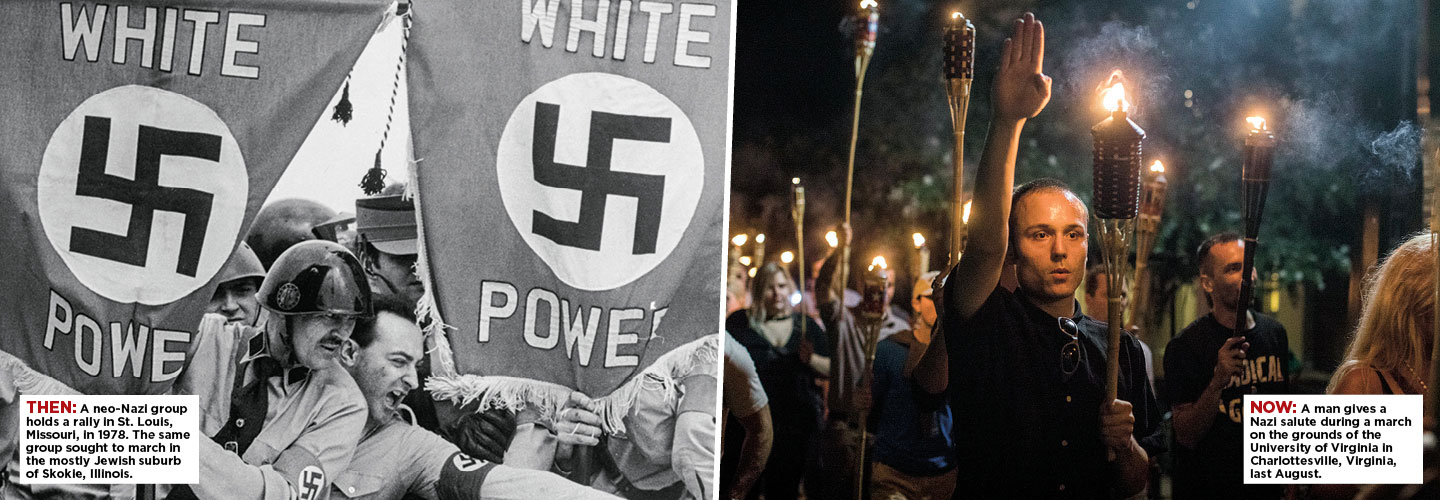After surviving unspeakable horrors at nine different concentration camps during the Holocaust, Ben Stern, a Jewish man from Poland, never thought he’d have to face Nazis again.
In 1946, after World War II (1939-1945), he and his wife emigrated from Europe to the United States to start new lives. They settled in Skokie, Illinois, a suburb of Chicago, and spent the next 30 years raising a family.
But Stern’s life was upended in 1977. To his shock, the Nazis were back—specifically, the National Socialist Party of America (NSPA), a small group of American neo-Nazis. They planned to hold a rally—complete with Nazi uniforms and swastikas—in the mostly Jewish suburb.
The town of Skokie issued an order prohibiting the demonstration. But the neo-Nazis found an unlikely ally in the American Civil Liberties Union (A.C.L.U.), a legal rights group that took their case. The dispute reached the U.S. Supreme Court, which helped clear the way for a lower court to rule that the neo-Nazis had a right to march under the First Amendment, which protects freedom of speech.
Ben Stern is a Jewish man from Poland. He survived unspeakable horrors at nine different concentration camps during the Holocaust. Stern never thought he would have to face Nazis again.
In 1946, after World War II (1939-1945), Stern and his wife emigrated from Europe to the United States to start new lives. They settled in Skokie, Illinois. That is a suburb of Chicago. They spent the next 30 years raising a family.
But Stern’s life was upended in 1977. To his shock, the Nazis were back. The National Socialist Party of America (NSPA) is a small group of American neo-Nazis. They planned to hold a rally in the mostly Jewish suburb of Skokie. The meeting would feature Nazi uniforms and swastikas.
The town of Skokie issued an order banning the demonstration. But the neo-Nazis found an unlikely ally in the American Civil Liberties Union (A.C.L.U.). The A.C.L.U. is a legal rights group, and it took their case. The dispute reached the U.S. Supreme Court, which helped clear the way for a lower court ruling. The lower court ruled that the neo-Nazis had a right to march under the First Amendment, which protects freedom of speech.

